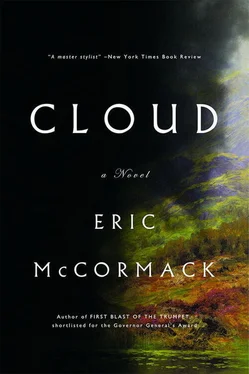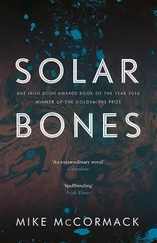“So, in the business sense, the marriage was clearly a great success. And, of course, it produced Alicia. What more could a man ask for? What would have been the purpose in my getting married again?”
The preliminaries of Gordon’s speech were over. His eyes seemed to become even more brilliant as he was about to come to the point.
“From what I’ve read, up till recent times men of ambition wouldn’t have thought of marrying just for love. I mean, if there wasn’t some material advantage to be got from it, they wouldn’t have considered it. Marriage was strictly about property, or inheritance, or business.
“You see what I mean? The idea of love as a basis for marriage was apparently one of those notions invented to keep ordinary folks happy. It allowed them to believe their marriages were just as important as anyone else’s — especially those they had to work for.
“Now if that sounds cynical, I don’t mean it to be. As far as I’m concerned, even in a marriage based on practical, business considerations it’s better if a man does love his wife.
“But what I’m trying to get at is this: let’s say, for any reason, a man’s wife can’t give him what he needs physically. Yes, physically — you know what I mean? Well, in that case, surely there’s no harm in him finding his satisfactions elsewhere. Discreetly, of course. It doesn’t mean he’s not a loving husband and she’s not a loving wife. It’s just that men can’t be expected to do without certain things. And anyway, most men enjoy … a bit of variety, shall we say? So from our point of view, it’s not all that bad.”
The tone of these last remarks of his really surprised me, as if a cloistered monk had said something of the sort. For Gordon had always seemed to me monklike in the service of Smith’s Pumps.
“Any wife worth her salt understands these things,” he went on. “As long as there’s discretion, she knows that a marriage is based on much more substantial elements — mutual business and family interests.
“Now in your case, Harry, when you lived in Scotland, putting love on a pedestal was quite understandable. You were young and poor then — you’d nothing at stake. But now you’re a partner in a thriving business. You and Alicia have produced a son — an heir. These are the things marriage is all about. The rest isn’t really important.”
Gordon sat back and sipped his brandy. He seemed quite pleased with all he’d said on the matter of marriage. He took it for granted there would be no questions.
About that, he was right. I might have asked why he’d even raised the matter — I suspected that he and Alicia had planned it together — but I kept quiet. In fact we never spoke of it again.
By mid-summer, Alicia had almost totally recovered from the birth. Frank was now six months old.
I’d just come back from a five-week sales trip to some diamond and bauxite mines in northern Australia. The travelling itself had been exhausting, and so I was happy when Gordon told me to take a week away from work and “get reacquainted,” as he put it, with Alicia and Frank. Accordingly, I stayed home and he went to the office alone each day.
On one of those mornings, Alicia and I were playing with Frank in the backyard when the phone rang. The time was ten-thirty. I ran to the kitchen and picked up.
It was Jonson on the line, calling from St. Polycarp’s Hospital. Apparently, shortly after arriving at work an hour before, Gordon had slumped over at his desk. Jonson had immediately called for an ambulance. He rode in the back beside Gordon till they got him to the hospital. This was the first chance Jonson had had to phone.
Alicia and I left Frank with the nanny and drove immediately to the hospital.
THE DAY WAS ONE of those incomparable summer days in Camberloo. The sky was a flawless blue, the trees were in full leaf, and the townspeople wore bright summer clothes. The red-brick hospital itself looked at its best, with ranks of blue and yellow flowers all in blossom along the gardens at the Emergency entrance.
Jonson greeted us at the door.
“They’ve managed to contact his doctor,” he said to Alicia.
“He was out on a house call but should be here any minute.” He then led us to a little private ward on the main floor and we all went in.
Gordon was lying on the bed, his head propped on a pillow. When he saw Alicia come in, his eyes brightened and he smiled weakly. He moved his hand towards her and she held it.
“How are you feeling?” she said.
“Now that you’re here, I’m fine,” he said to her in a quiet voice. He tried to say something else, but his eyes narrowed and he looked puzzled. Then the puzzlement evaporated from his face and the light went out of his eyes. And he was dead.
HIS HEART HAD BEEN bad for a long time. So his doctor, a plump man in a polka-dot bow tie who arrived at the hospital just minutes after Gordon died, revealed to us. He was surprised Alicia didn’t know that in recent years her father had consulted a number of specialists. All of them had told him he shouldn’t be working. He’d been on a strict regimen of pills.
That night, Alicia found several bottles of these pills hidden under layers of underwear and socks at the back of a drawer in his dresser.
TWO DAYS AFTER his death, Alicia and Jonson and I sat together miserably in the chapel of the Final Gateway Crematorium. The plain wooden coffin lay on the catafalque. I had my arm round Alicia, who was weeping quietly. Gordon, in line with his dislike of public displays, had requested that his body be cremated, that only we three be present, and that there be no funeral service of any sort. It was cold in the crematorium because of the air conditioning. Outside, the day had been humid, the sky heavy with the threat of a storm.
The undertaker appeared and whispered that we might wish to take our last look at the deceased. So we went up to the coffin. The top had been lifted and we could see what had once been Gordon lying there, his eyes closed, his face like a shrivelled apple. The undertaker’s efforts to redden his lips and cheeks had failed to make him look alive.
Alicia sobbed at the sight of him. Jonson and I gripped her arms to support her.
As we were standing there, the chapel door swung open and footsteps approached the catafalque. It was Gordon’s doctor, in the polka-dot bow tie he’d been wearing the last time we saw him. He was now carrying an alligator-skin doctor’s bag.
Naturally, we wondered what he was doing here.
He was a little embarrassed that the undertaker hadn’t informed us. The fact was that Gordon, more than a year ago, had told him about his wish to be cremated. He’d commissioned him to come to the crematorium in the moments before incineration and make sure he was quite dead.
“It’s just a formality,” the doctor told us. “That is, if you’ve no objection.”
We had no objection.
Our final goodbyes to Gordon having been said, the undertaker ordered the coffin to be wheeled out of the chapel into the committal room, its last stop before the oven. The doctor, with his bag, accompanied the coffin. He’d been in the committal room for only a few minutes when he returned.
“Everything was fine,” he said to us.
Soon after that, a blue light began to flicker on and off in the chapel. That was the sign the final act was about to take place out of our sight. We could hear the ignition roar of the gas jets, followed not long after by the squeal of a conveyor belt’s rollers as the coffin slid into the oven.
The undertaker appeared again and advised us to go home. The process of incineration and preparation of the ashes would take several hours. We could pick them up that evening if we so wished.
Читать дальше











